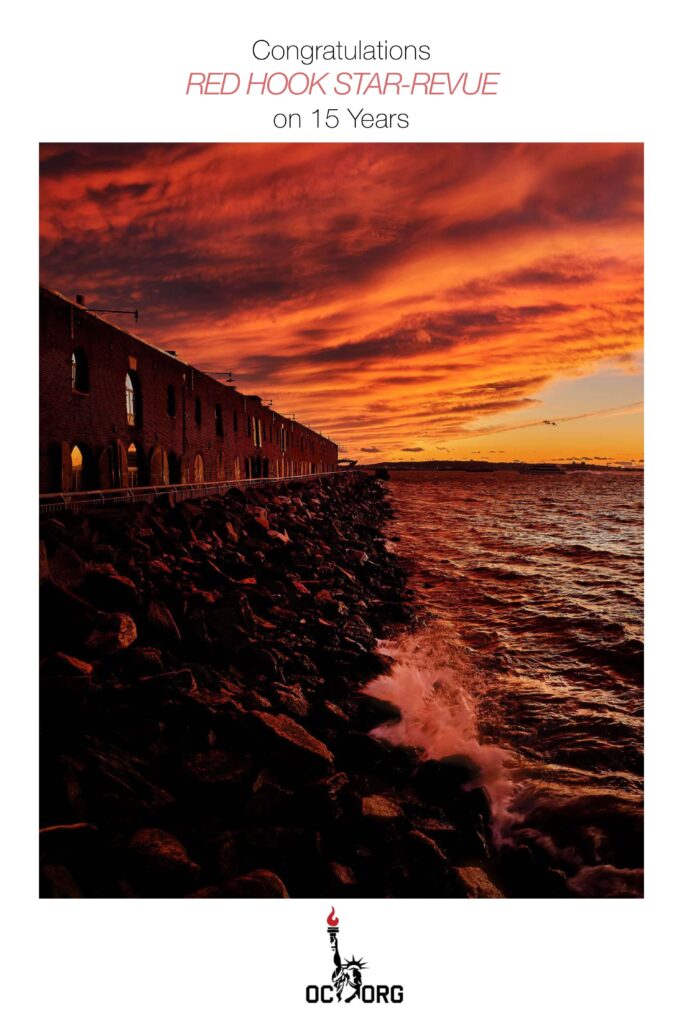The plays are some of the greatest ever written in the English language. The venue is a product of necessity, opportunism, and the quirks of New York real estate. This July marks the 25th anniversary of Shakespeare in the Parking Lot, the annual production of the Bard’s plays that is exactly what it sounds like.
Produced by local theater group The Drilling Company, Shakespeare in the Parking Lot is theater in the open air and on the blacktop, free to anyone who wants to stop and watch. This summer’s offering, “Romeo and Juliet,” runs from July 11 to the 27.
“It’s the best place to perform Shakespeare in the world,” says Hamilton Clancy, Artistic Director of The Drilling Company. “The parking lot is at once tremendously intimate and tremendously presentational. You’re right there. You’re talking right to people.”
“The audience can see backstage a lot of the time,” says Anwen Darcy, who plays Juliet in this year’s production. “There’s no divide between the audience and us, so it makes everybody feel like we’re all on the same team.”
The plays were originally produced by the now-defunct Expanded Arts theater company, who in 1994 occupied a tiny storefront space at the corner of Ludlow and Broome Streets. Across the street, a city parking lot offered space aplenty, reliable lighting, and only a few heroin addicts.
“I once had to ask a fine young man if he would go shoot up a little further up the block, and he said sure,” says Jennifer Pais, 51 who co-founded Expanded Arts with her then-husband Robert Spahr, 53. They wanted to produce theater that was part of the fabric of the neighborhood, and they wanted to keep it free. The couple passed around a bucket at the end of a show to fund the parking lot productions. It’s a tradition that continues today.
Also traditional (or just inevitable): the disruptions that come from staging Shakespeare on a New York street corner.
“There was a garbage truck that would cut through the parking lot as a shortcut on certain nights of the week,” recalls Robert Spahr. “We would just stop because it was so loud and bow down to the garbage truck as kind of a schtick.” The audience loved the ritual so much that when the embarrassed garbagemen offered to stop driving through the lot, Spahr and Pais told them to keep it up.
“Secretly, those are my favorite, favorite times,” says Pais. “Things happen in the open air. It’s bumpy and messy. It’s not pristine, and it’s not neat.”
These days the parking lot of choice is behind the Clementé Soto Vélez Cultural Center on Suffolk Street, but the pleasant messiness endures. The unpredictable environment helps build a connection between the audience and the cast of the play. If a truck rolls by, or a siren goes off, everyone experiences it together.
The setting also ensures that the show is boiled down to its bare essentials. Costumes and props are simple, and set design is minimal. Juliet’s balcony this summer will be a small scaffold. That puts the show’s focus on the actors, the text, and the characters.
“If you want a Romeo and Juliet that really digs into the emotional tragedy of two kids falling in love and the world falling apart around them,” Says Anwen Darcy, “come see us.”
Ben Masten is a student at CUNY’s Graduate School of Journalism
Photos: Adam Huff (as Romeo), Anwen Darcy (as Juliet). All photos courtesy Jonathan Slaff/ The Drilling Company.
Author
Discover more from Red Hook Star-Revue
Subscribe to get the latest posts sent to your email.










